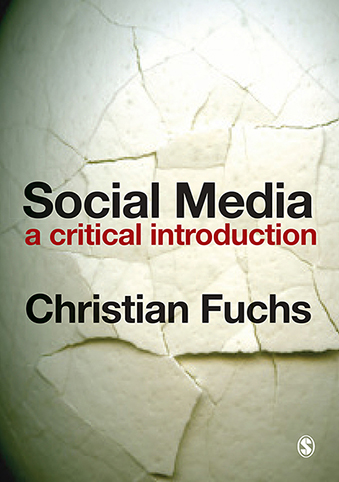#review features links to, summaries of, and discussions around academic journal articles and books. Today I review Christian Fuchs’ book–Social Media: A Critical Introduction.
Generally, I’m not a big fan of textbooks. The bold words and broadly glossed-over content beg for flash-card style teaching. Because of this, I always opt for edited volumes and peer-reviewed journal articles, sprinkled with blog posts and popular media clips. Fuchs Social Media: A Critical Introduction, however, is not your typical text book. Rather than a corpus of definitions, the book is at once a review of the field, an argument about how scholars should approach the field, and a biting critique of the social media landscape.
As indicated by the title, Fuchs’ work examines social media from a critical perspective. Critical, for Fuchs, refers explicitly to Marxism and neo-Marxism, with power and resource distribution the key focal points. A Marxist take on social media examines exploitation and domination by studying both political economy and political communication of social media. That is, a critical perspective looks at who owns the means of production in both the financial and attention economies, and how various media perpetuate, reflect, or potentially upend, an inherently exploitative capitalism.
Early in the book, Fuchs makes an effort to differentiate this perspective from other uses of the term “critical,” and to distance this work from non-Marxist scholarship. Reminiscent of a debate summarized by PJ Rey, Fuchs explicates this distinction: more...





